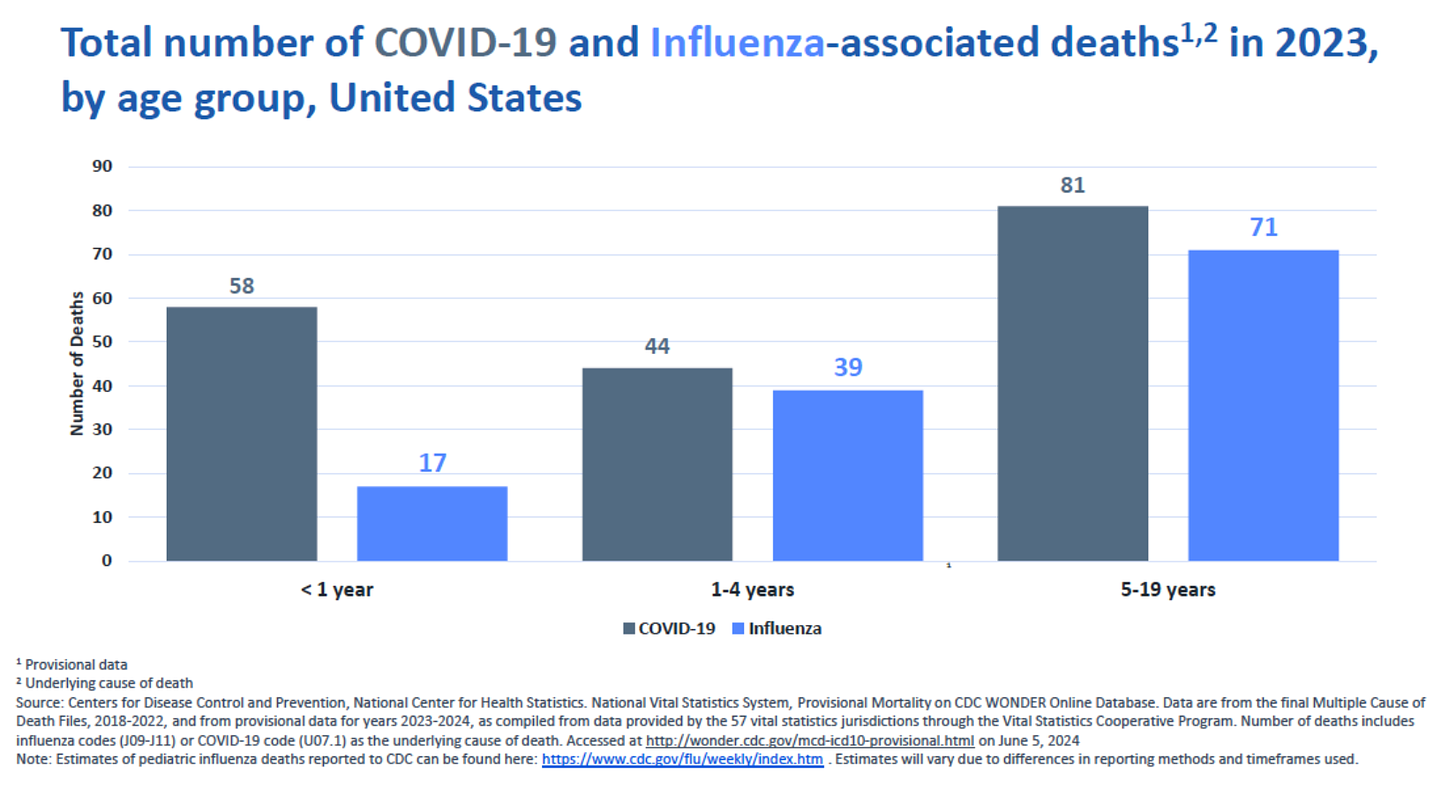Everyone can benefit from a boost to their COVID-19 protection before the winter respiratory virus season.
Think of your immune system like a smartphone or computer. When you got your primary COVID-19 vaccine series, it was like installing powerful antivirus software to protect against known viral threats. But as with any software, over time, new bugs emerge that the original program wasn’t designed for. Getting a booster is like downloading an important software update—it refreshes your protection, making sure your immune system is prepared to handle the latest version of the virus. Staying updated keeps your protection as strong and effective as possible. (Of course, this is not a perfect analogy for immune system biology, but you get the idea!).
Here are just a few reasons why you should roll up your sleeve for the updated COVID shot this fall:
- COVID isn’t gone.
We are in a MUCH better place than we were for the past three winters, thanks to accumulated immunity from both vaccines and infections. BUT, COVID still routinely killed more than 1500 Americans per week last winter and during this recent summer wave, which is worse than a bad flu season (and we still have the flu deaths *on top* of this). Current US national wastewater levels for SARS-CoV-2 are still considered high.
- An updated COVID shot boosts your protection against severe disease.
Even for those who had *all* the previous shots, a booster last year provided additional protection against critical illness and hospitalization. We know that unfortunately, COVID-19 vaccine effectiveness wanes over time. SARS-CoV-2 also mutates over time, which is why we now annually update the shots to better match currently circulating variants (similar to the annual updates for the flu vaccine). The vaccines are still our best tool for keeping people out of the hospital and not dying from COVID, but they do have to be refreshed. You want that software update! - You’ll lower your chances of getting infected, especially in the short term. Last year’s booster was estimated to lower the risk of symptomatic infections by 50% compared to not getting the updated shot. The reduction in risk for urgent care and emergency room visits was similar. Antibodies that neutralize the virus increase considerably after COVID vaccination. That means your risk of infection is much lower (but not zero) for several months. Getting an updated shot can be especially helpful if you know you have important travel, holidays, or other special events coming up (if you are trying to optimize your timing, protection should peak 2 weeks after your shot). As we know, COVID can be a nasty virus for anyone, so avoiding an infection you might have otherwise gotten is win-win. Over your lifetime, each delayed or avoided infection could add up to many fewer total COVID infections!
- It’s not obvious who is high-risk for severe COVID-including kids.
There is no clearly defined group that is completely safe from severe COVID, and it is not easy to know who is at highest risk. Increasing age is the strongest risk factor, but otherwise most people don’t know if they are particularly vulnerable to severe COVID or not. Even age isn’t clear-cut. We know many older relatives who underestimate their risk based on age alone because they are generally healthy. Age-related immune decline (aka immunosenescence) comes for everyone (we know, not fair!). Kids can also be at higher risk, especially the youngest. Kids <6 months old had a similar COVID hospitalization rate as adults 65-74 in the past year. Among kids aged <17 hospitalized for COVID, 50% had no underlying condition–so no reason to believe they would have been at higher risk. This August, the percent of Emergency Room visits due to COVID peaked at nearly 5% in kids ages 0-11, higher than any other age category. Tragically,183 kids lost their lives due to COVID in 2023, more than the flu (figure below). Going unprotected from COVID because you assume you are not high risk is like not wearing your seatbelt because you think you are a safe driver.

- Vaccination may reduce the risk of long COVID.
Each repeat COVID-19 infection is a new chance for potential longer term effects. We have evidence that additional doses prior to your first infection reduced the risk of Long Covid. Whether this extends to additional vaccine updates and subsequent infections is not yet known for sure, but biologically plausible.
- You can help protect those around you.
Fewer infections mean less transmission. Less transmission means fewer cases. Fewer cases mean fewer serious cases and deaths. If my vaccine protects me from an infection, even in the short term, I can’t pass the virus to others. This means that my vaccine also protects other people, particularly those whose immune systems don’t respond as well to vaccines. While COVID vaccines don’t “block” transmission completely as we once hoped, they do reduce the likelihood of transmission to others, even if you are infected. - The vaccines are extremely safe. COVID is not.
The COVID vaccines are among the most extensively monitored in human history, and extremely safe. Your chances of encountering COVID this winter (or any time of the year) are high. A decision not to get the vaccine is a decision to expose yourself to the virus with less protection than you otherwise could have.
BOTTOM LINE:
Go get that updated COVID vaccine! The only caveat is that if you have had a recent COVID infection, we recommend waiting at least 3 months until your next shot.
Stay Safe, Stay Well.
Love,
Those Nerdy Girls


